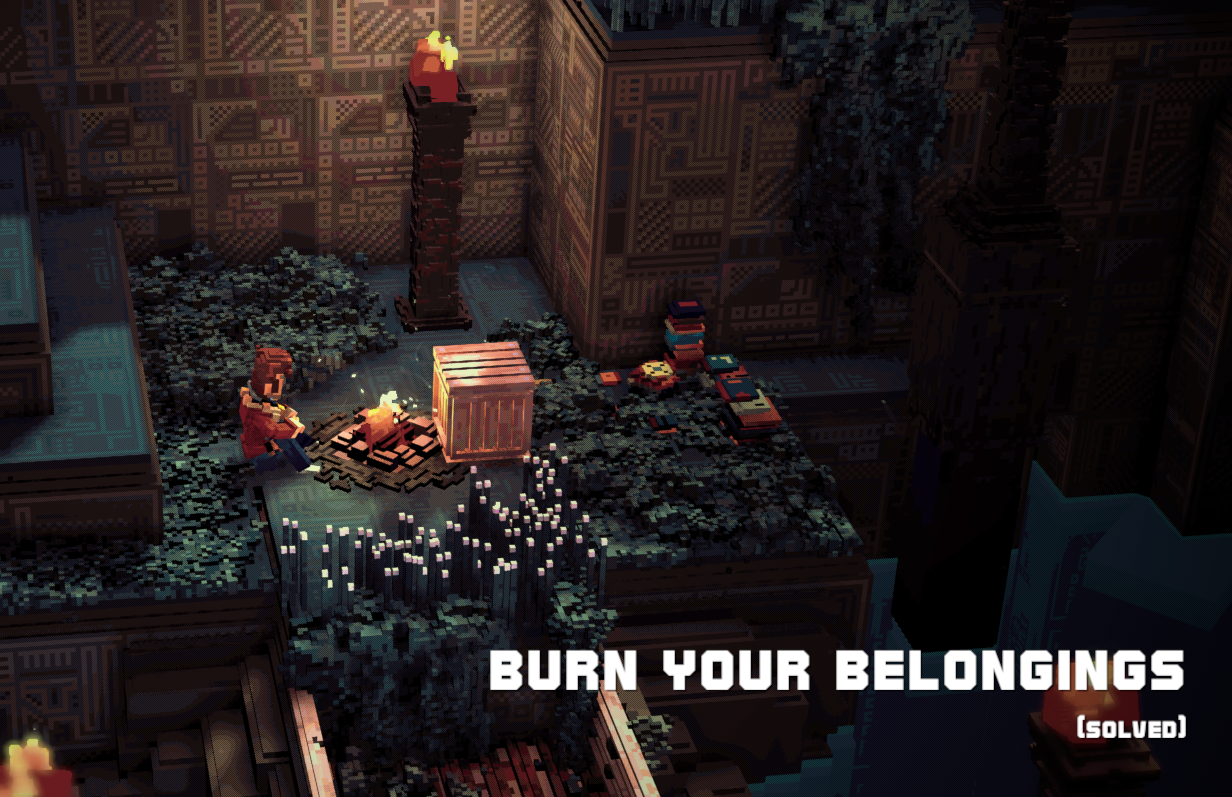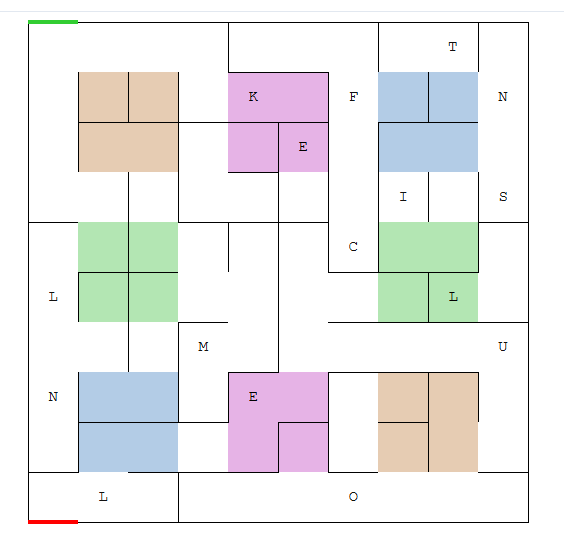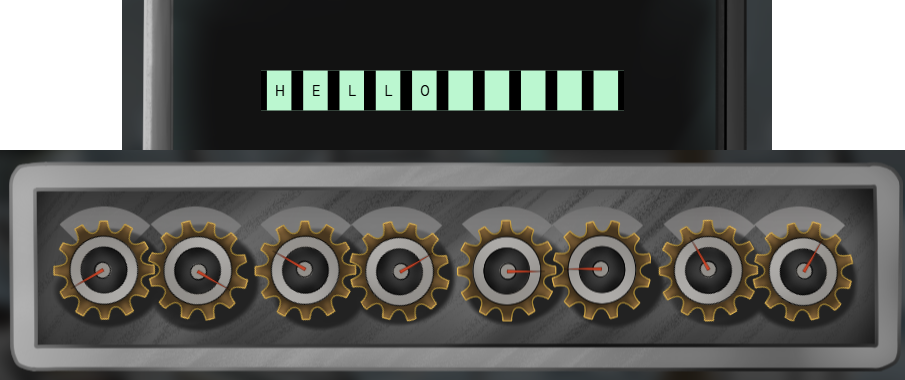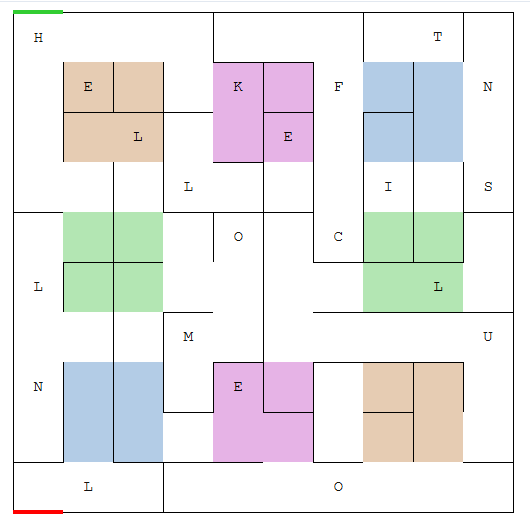Musings on metapuzzles, part 3: Resource metas in puzzle games
At the start of this I defined metapuzzles as being about collecting information or resources, but as I bring it around to actually talking about puzzle games I'll flip the order and talk about resources first.
This'll have some extremely minor early spoilers for Talos Principle 1 and Bonfire Peaks, and significant spoilers for the Hall of Innovation and Factory Floor rounds from the 2023 MIT Mystery Hunt.

Many games with individual puzzles feeding into a meta have each one reward a resource, sort of like puzzlehunts’ token metas. For instance, solving a puzzle in The Talos Principle rewards a tetromino that goes into a tetromino puzzle to unlock something new, or solving a puzzle in Bonfire Peaks rewards a box that can be used in the overworld to get to a new area. Just like answers in puzzlehunt puzzles, these resources create an abstraction around the individual puzzles, so you get the same practical advantages of the exact details of the puzzle not mattering.
That sort of thing can just be a glorified way to say "you need to solve X puzzles to proceed," but a resource can be more complex. For example, though I'm kind of stretching the definition of "resource" to say this, sometimes solving a puzzle provides a way to change state of the metapuzzle. In some cases, changing the meta state involves solving the individual puzzle in a different way, using a different exit or with resources left over. This breaks the abstraction layer: the design's more challenging, but the solver can think about multiple layers at once for a more unique experience.
(Unfortunately I don't have a good example I can put here because the ones I know of are very late-game spoilers)
The disadvantage of more elaborate metas like this is losing partial solvability- more complex ones tend to need all of the state changers to solve, and sometimes even become strictly linear in how you have to do things. It's something to be mindful of when designing the difficulty curve.
Can the state change meta idea work its way back into puzzlehunts? Well, I promised Mystery Hunt spoilers and haven't gotten to them yet, so you can probably guess the answer to that question.

The 2023 Mystery Hunt took place in both a museum-themed puzzlehunt and the "factory" where the puzzles were being created. The Hall of Innovation round in the museum had a bunch of warnings about how the puzzles weren't finished yet. The puzzle above, Maze, is trivial by Mystery Hunt standards: find a path through the maze, write down the letters on the path, and that's your answer. The problem is, of course, that as shown the maze is impossible.
It turned out that solving puzzles in the factory unlocked state changers: a set of interactive "gizmo" controls on the hunt website that changed the Hall of Innovation puzzles in various ways. The Maze had two gizmos: a set of dials that rotated some of the walls to change the solve path, and a text entry that added more letters to the grid. Using those could make the puzzles solvable, or even change their answers. (And when you're on a team of dozens of people, anyone on your team changing the devices would change the Innovation puzzles for everyone on the team, to the chagrin of whoever was working on them.)


The gizmos each affected multiple puzzles, so the first layer of the metapuzzle after understanding how all the individual puzzles worked was to come up with a state where all of the puzzles could simultaneously be solved. Doing that provided information on what all the puzzles' answers were supposed to be, so the next step was to arrange everything's state to produce all of those answers. And because it's Mystery Hunt, there was another more complicated metapuzzle after that that used all of that information along with the answers from the factory puzzles, but that's not really relevant to this post since it was a more conventional meta.
This example is kind of singular in the puzzlehunt world- token-based metas aren't very common, and when other online hunts have interactive elements they're usually on a much smaller scale. Next time I'll go over to the "information" side of my definition, which lines up more directly to the standard puzzlehunt answer-based metas. In games those don't show up as much in systemic games like the examples I've discussed here, but do show up in more adventure-style, riddle-based, or otherwise "messy" games.